As a registered Not For Profit company, AfrikaBurn provides all details of its structure and governance to anyone interested. If you have any queries about how our organisation works, you’re in the right place.
AfrikaBurn is an entity wholly owned by the community through Afrika Burns Creative Projects Non Profit Company (NPC).
The organisation has a two-tiered governance structure, comprising of community representitives.
From our PROATIA manual to our Annual Financial Statements, this is where you will find all the paperwork.

AfrikaBurn is wholly owned by Afrika Burns Creative Projects Non Profit Company (NPC). The company was registered on 24th July 2007 in South Africa and its registration number is 2007/020812/08.
Non‐profit organisations provide some public service or have some public purpose that goes beyond serving the personal interests of the members of the Non Profit Company (such as the promotion of the arts, social welfare, economic development, charity, education or research).
AfrikaBurn’s purpose is described in its Memorandum of Incorporation. Download that here:
AfrikaBurn Memorandum of Incorporation
Non-profit organisations may (and should try to) make a surplus, but may not distribute their property, assets or surplus to their members. AfrikaBurn uses any surplus it makes to further its purpose, objectives and public interest. This means that no Member or Director of AfrikaBurn makes a profit from AfrikaBurn – or ever will.
Some Directors and Portfolio Managers may be (very modestly) remunerated for their services so that they may continue to live and feed themselves while contributing their time to making AfrikaBurn happen. If you’d like to know more about the organisation’s finances, you can do that here.
Non-profit organisations frequently do not generate enough income to cover all their expenses, so they fundraise from the public or donors. AfrikaBurn operated at a loss for the years 2007, 2008 and 2009 but due to generous donations of cash, time and services of the community, the organisation was able to continue. However, from 2010 onward the numbers of people participating in AfrikaBurn has meant that the organisation has been able to support itself and fund an increasing number of creative projects and art at AfrikaBurn events, and beyond.
AfrikaBurn was brought into existence in 2006 and 2007 entirely by volunteers and donations and services provided for free (or nearly for free). It continued this way for many years, but as the event grew, so did the operational requirements – and expenses. One of the biggest changes was to offer a modest stipend to the go-to people behind key functions for the event and project. This was a highly-debated issue when changes were made in 2012.
The growth of AfrikaBurn astounded everyone from the beginning. It started life as a runaway juggernaut and this trend shows no signs of slowing down.
Very simply, though, the growth of the event outpaced the growth of the organisation that runs it. The increased workload brought many dedicated volunteers perilously close to breaking point. You may not know it, but this was one of the reasons behind limiting the numbers of tickets available to AfrikaBurn in previous years – the limited capacity of the team. In short, the number of people doing the year-round work needed to catch up to the work itself. We’ve made a big effort to bring more volunteers into the organisation, doing the important work of diversifying, and there are now clearly defined functions and tasks – and people in place to do them – to share the knowledge and spread the load. The aim is to make the event and organisation sustainable, and enable AfrikaBurn to grow as more than just an event.
As part of this process, it’s really important to sustain the lives of those who dedicate themselves to this work. Paying people is an investment in the human beings that are the backbone of the organisation, and represents a modest recognition and recompense for their hard work, loyalty, and long-standing commitment to AfrikaBurn, its future, and what it can do in the world.
Wherever possible, we continue to search for volunteer service providers, both inside and outside the organisation. But as in any operation, there are certain services for which it is necessary to pay.
So, what do we mean by necessary in this regard? Well – to us – this means when someone who is critical to making AfrikaBurn happen doesn’t have an alternative income and is giving all (or most) of their time to working on the event and needs money to survive and make a living. Or they do have a separate income, but the demands of their volunteer role is such that they must work significant additional hours in order to fulfill it.
And, what do we mean by modest? In our minds this is an amount of money that would be regarded as a fair and completely reasonable payment for their time contributed. While we are not there yet, the intention is ultimately to be able to offer an amount of money which is reasonably in line with what other managers of small non-profit organisations would get paid. In other words, it’s not a lot of money, it’s in fact below the standard rates that an equal position would be paid in a comparable industry, but it makes a real difference to the recipient and means our organisation’s core team are able to fully dedicate their time and energy to getting the job done.
For more information, please take a look at our annual financial reports.

Afrika Burns Creative Projects is governed by community members just like you who’ve stepped up and decided to champion the organisation they feel strongly about. It’s entirely voluntary to be a Member or a Non-Executive Director on our Board, and no one benefits from the position.
If this feels like you, or you’re feeling called to the cause. Please visit see below for more info.
Below is a list of current and past Members and Directors. AfrikaBurn and its participants are grateful for their passion, contribution and love. If you’d like to become a Member or Non Executive Director, see below for more information or contact memsec@afrikaburn.com
Samantha Bendzulla**
Jan Bester
Dane Marrison*
*Executive
** Chair
Sydney Mathebula
Coenraad Middel
Nic Raubenheimer
Michael ‘t Sas-Rolfes
Lorraine Tanner*
Alex Noble
Bee West
Bryan Lang
Cara Morris
Cat Carlton
Cate Turner
Catherine Williams
Diaan Nel
Faldelah Fletcher
Gülden Aktugan
Isa Marques
Jacqui Woolfson**
Lorraine Tanner*
Maloba Kgomo
Michelle Behrend
Monique Schiess**
Paul Fletcher
*Robert Weinek
Samantha Bendzulla*
Scheepers de Bruin**
Sindy Dondolo**
Steven Tu
Subhas Shah
The Tim Doyle
Wayne McDermid
* non-voting
** on sabbatical
To contact the Members, mail memsec@afrikaburn.com
Alex Marsh
Adriaan Wessels
Brad Baard
Elizabeth Linsell
Graeme Allan
Jacqui Woolfson
Jonathan Hoffenberg
Julia Savage
Michael ‘t Sas-Rolfes
Mickey Gerhard
Paul Honig
Paul Grose
Richard Bowsher
Simon O’Callaghan
Travis Lyle
Tristan Lang
To contact the Emeritus, mail memsec@afrikaburn.com
Abi Case
Adetola Okunlola
Adriaan Wessels
Brad Baard
Graeme Allan
Jonathan Hoffenberg
Jonathan Cline
Julia Savage
Karyn Reynolds
Lil Visser
Elizabeth Linsell
Monique Schiess
Paul Grose
Lungile Zakwe
Paul Jorgensen
Robert Weinek
Roger Van Wyk
Travis Lyle
Malimalo Phaswana
Rianna Rianna
Ralph Borland
Marc Anai-Isaac
Annette Van Velzen
Andrew Currell
Anine Trumplemann
Brendan Smithers
Charles Palm
Devin Herd
Devin Isaacs
Erica Inches
Helena Sheridan
Graeme Allan
James Happe
Jan Lohfeldt
Jano January
Jonathan Cline
Jonathan Hoffenberg
Karen Stewart
Kirsten Brann
Lil Visser
Michael ‘t Sas-Rolfes
Nathan Victor Honey
Nicci van Noordwyk
Paul Barker
Paul Grose
Paul Jorgensen
Regan Tacon
Rian Brand
Richard Bowsher
Richard Voller
Roger Van Wyk
Sebastian Prinz
Shelley Cooper
Simon O’Callaghan
Simon Goddard
Verity Maud
Werner Strauss
Lil Visser
Michael ‘t Sas-Rolfes
Monique Schiess
Paul Jorgensen
Richard Bowsher
Robert Weinek

As a Non-Profit Company, AfrikaBurn has a two-tiered governance structure consisting of Members and Directors. AfrikaBurn’s Memorandum of Incorporation (or founding documents) clearly and legally define the organisation’s purpose and object – both of which explicitly include the core principles of Communal Effort, Participation, Civic Responsibility, Immediacy, Decommodification, Gifting, Leaving No Trace, Radical Inclusion, Radical Self-Reliance, Radical Self-Expression and Each One Teach One.
The organisation is officially Afrika Burns Creative Projects NPC (Non-Profit Corporation), frequently referred to as AfrikaBurn. AfrikaBurn’s founding document is the Memorandum of Incorporation (MOI), which sets out the organisation’s objectives.
To advance a culture of creativity: upholding and promoting freedom and diversity of expression, inclusive community building and volunteerism with the aim of fostering positive social change, which:
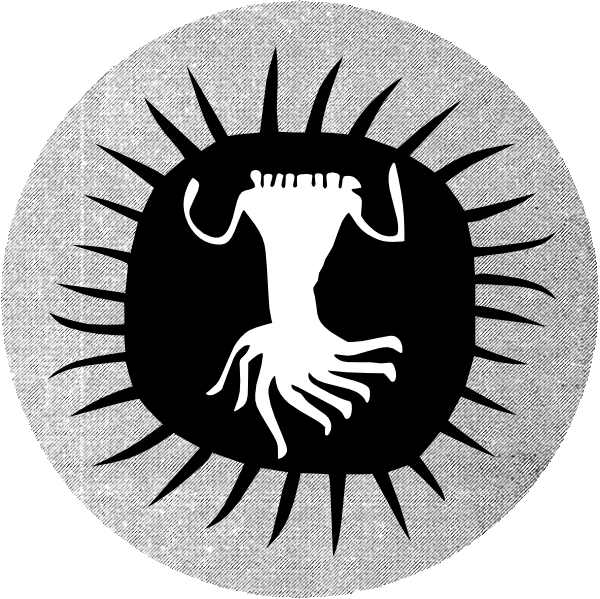
Members form part of the three-tiered governance structure of the Organisation alongside the Directorship and the Executive Committee. The Membership is a voluntary mechanism for democratic participation in the organisation.
Members are the cultural custodians of the organisation and by extension, the movement it serves – including and beyond the annual AfrikaBurn gathering. Members guide the philosophical and strategic direction of the organisation. They give guidance and direction to the organisation in non-operational matters that affect the sustainability and longevity of the organisation.
Externally, they act as ambassadors of the organisation and the culture it supports. Members have the opportunity to be cultural catalysers within their spheres of influence, encouraging active collaboration and transformational experience beyond the organisation.
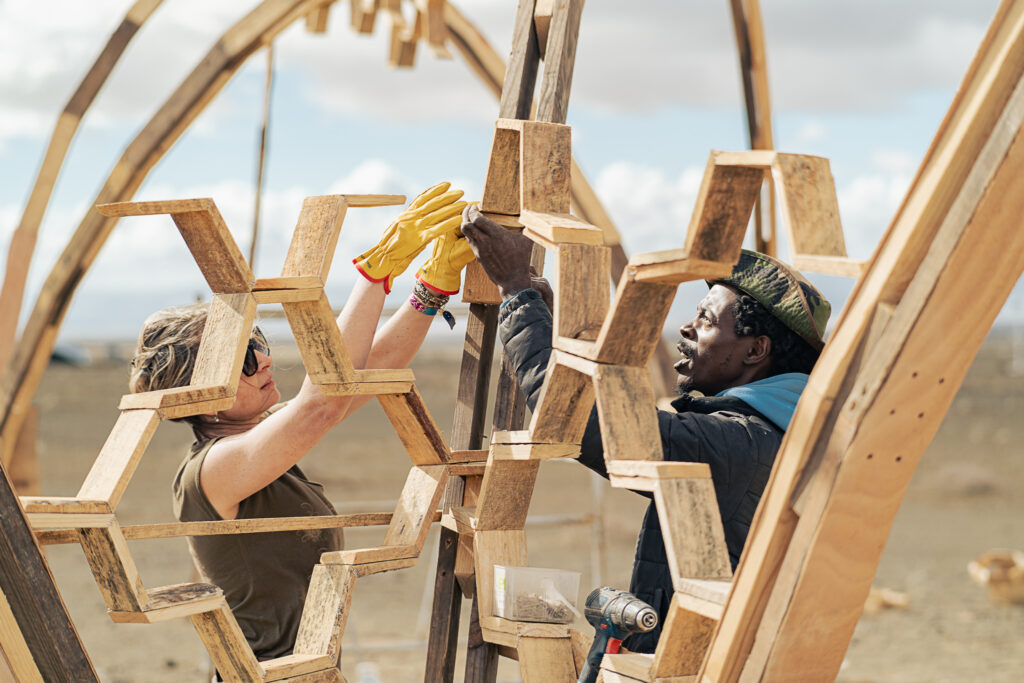
 WHAT DO MEMBERS DO?
WHAT DO MEMBERS DO?Members consider, discuss, and vote on matters regarding:
● Electing and removing members
● Electing and removing Non-Executive Directors
● Changes to the MOI
● Approving financials, budget, and strategy.
Members participate in monthly couch calls, the 2-day Bosberaad, 2x full-day Special Members Meetings and the AGM.
In their philosophical responsibilities, Members are expected to reflect on the purpose of the organisation in the global burner community, the local burner community, and the South African context, and the responsibilities that may be associated with this. They ensure that the organisation continues to question and challenge itself. To do so, they participate in discussions with integrity, candour, curiosity and an open mind.
Each Member is required to serve in at least one Member working group, portfolio, committee or task team and is encouraged to share with the Membership information from this group that inspires and supports a more holistic understanding of the activities of the Organisation.
A Member should have sufficient time available outside of their personal commitments to dedicate an estimated average of 2 hours per week (120 hours per year / 10 hours per month) to the responsibilities of Membership, including participation in meetings and engaging with issues, discussions, and documents.
Members are not paid for their service. They commit their time, skills, knowledge and expertise voluntarily and without compensation.
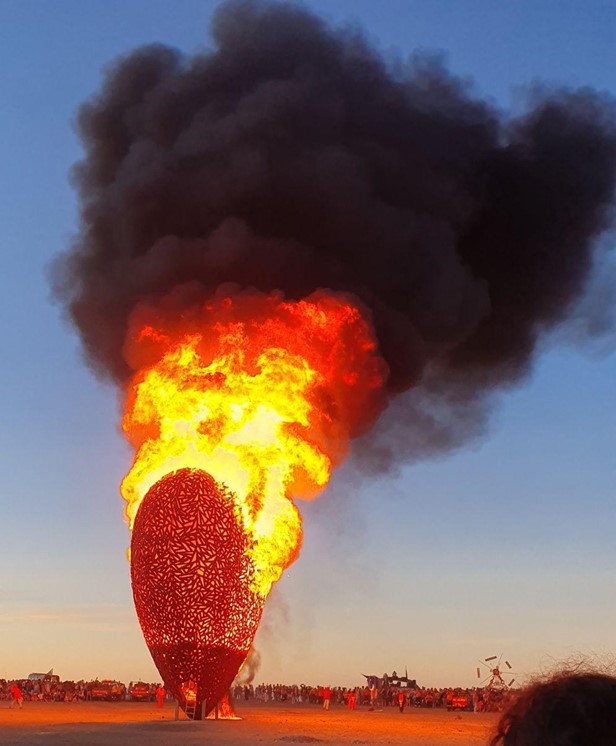

Members are active in the AfrikaBurn community – meaning that they are committed to furthering the culture of AfrikaBurn through the 11 Guiding Principles in a year-round capacity. Everyone in the broader burner community is encouraged to embrace these behaviours.
As such, new Members are sought with the express intention of filling gaps in the Membership that ensure cultural and cognitive diversity. The AfrikaBurn Membership is committed to being inclusive and equitable so that we can lead experimental transformation.
Qualities of a Member:
Collaborative by nature.
A strategic and lateral thinker.
Able to tolerate and work with a diversity of views.
Able to mediate between differing views.
Able to handle responsibility without authority.
Aware of the local social climate and context.
Conscious of their position/power.
Known, respected and active in their community.
Familiar with online communication platforms.
Display integrity and discretion.
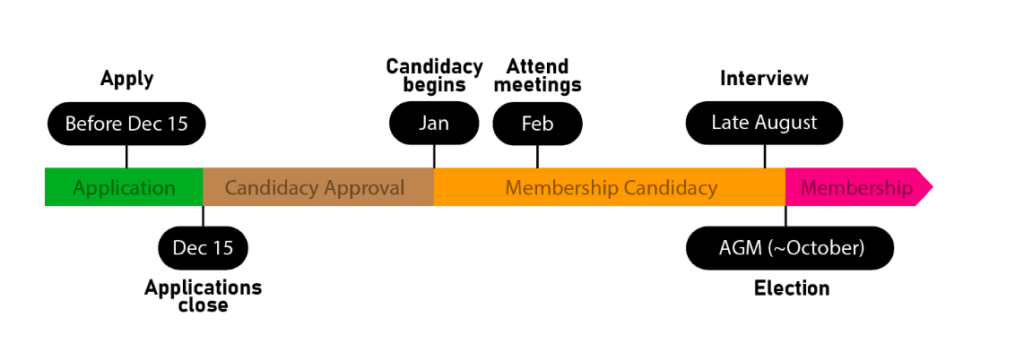
Application for Membership of the organisation is open to all who identify as part of our community. Candidates from all walks of life, backgrounds and interests are encouraged to apply.
The organisation strives to reflect a broad and balanced cross-section of the current Burner community and the community we aspire to be. For this reason, eligible candidates will be evaluated in light of the needs of the organisation, with the intention to ensure that representation within the membership is broad, varied, balanced and inclusive.
You can apply at any time during the year. Applications for Candidate Membership will close on 21 January i.e. apply before 21 January for 2025 Membership Candidacy.
Applicants and/or their nominee should contact memsec@afrikaburn.com* and request the Member Application Pack. This includes the Beginners Guide to Membership, the Code of Conduct, and a written interview questionnaire.
Submit your application pack to memsec@afrikaburn.com*. Applications should include (in PDF format, please):
The completed Interview Questionnaire
Your Curriculum Vitae
A letter of recommendation from your nominee / a member of the Burn community (please include their contact details).
The Members Secretariat (MemSec) will confirm receipt of your application pack.
The Candidate Member Working Group will contact you in January to inform you of your Candidate Membership Status and next steps.
* If you do not receive a response to a mail sent to MemSec within three working days, please double-check the email address you sent to and reach out again (MemSec works voluntarily and will appreciate your efforts).
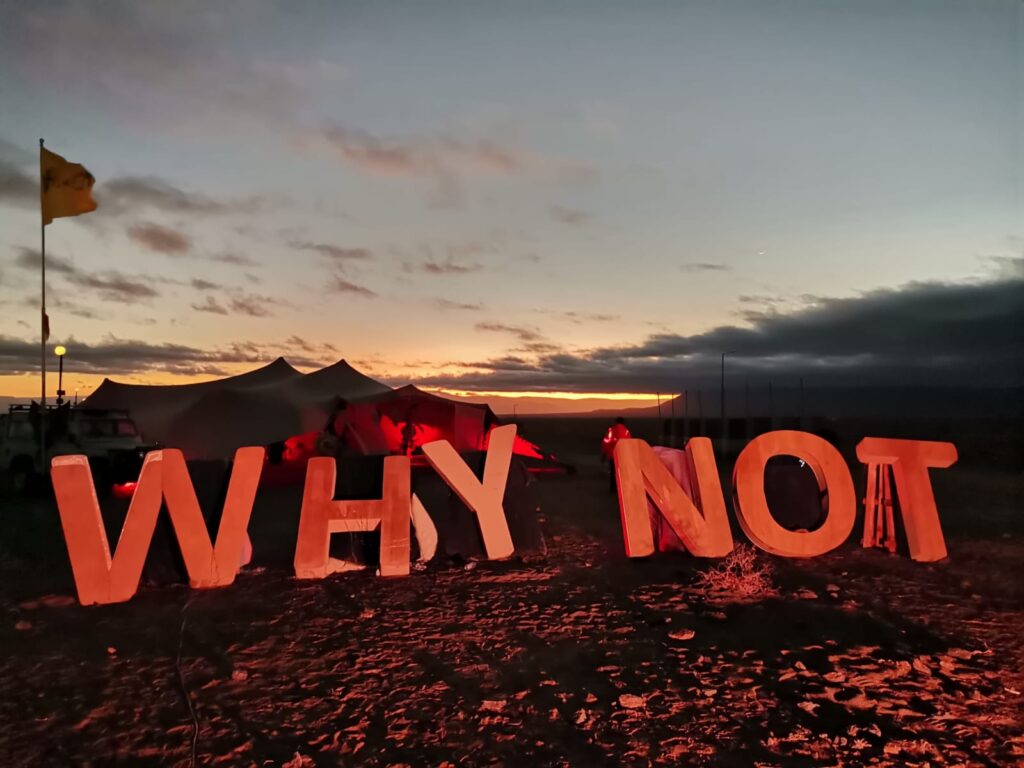
Selected applicants enter an ±8-month period of candidacy – a period of active service and
engagement within the Member body, without the responsibility of voting.
This period allows the Candidate Member an opportunity to develop an experience-based understanding of the nature of the role for which they have applied and to get to grips with the work of the membership before fully committing and assuming the responsibilities of voting. It allows Members the opportunity to gain an experiential understanding of the candidate within the membership sphere before casting their vote on new members at the AGM.
During this period, Candidate Members are encouraged (and expected) to actively engage with the work of the membership and add their voice and perspective to discussions taking place within the Member’s sphere. Candidate Members are required to meet the same attendance, ethical, philosophical and service responsibilities as voting Members, with the exception of voting.
This period will allow them to better familiarise themselves with the membership, the organisation as a whole, and opportunities for volunteering.
They are also encouraged to reach out to the Candidate Member Working Group – or anyone in the member body – for support, guidance, insight, and clarity about how the organisation works and the matters at hand.
There is no way to shortcut to this step. You have to go through the application and candidacy process first. Sorry! In late August of your Candidacy period, you will be asked if you would like to be considered for Voting Membership. If you do so,
Selected Candidates who ask for consideration will be invited to an interview conducted by a small panel of Members.
You will have to write a letter of motivation.
Your candidacy will be voted on by the existing Members at the AGM that follows the completion of their candidacy period (although this may also take place at an alternative date from time to time). The minimum threshold for election into the Membership is 51% of all eligible votes.
If you are voted in, you must sign the Consent to Serve as a Member. Upon signing, you will be a Voting Member!

Any person involved in our greater community may apply to become a Member and is either motivated to come forward and apply themselves, or is encouraged to do so by someone within the AfrikaBurn community at large.
Applicants and/or their nominee should contact memsec@afrikaburn.com* and request the Member Application Pack. This includes the Beginners Guide to Membership, the Code of Conduct, and a written interview questionnaire.
Submit your application pack to memsec@afrikaburn.com*. Applications should include (in PDF format, please):
The completed Interview Questionnaire
Your Curriculum Vitae
A letter of recommendation from your nominee / a member of the Burn community (please include their contact details)
The Members Secretariat (MemSec) will confirm receipt of your application pack
Membership applications are currently open.
If you or someone you know is interested in being a Member, click here to download the Beginners Guide to Membership.
And this is the Membership application pack.
The Directors of AfrikaBurn hold overarching responsibility for meeting the objectives of the organisation; for ensuring its activities are philosophically aligned with the guiding principles; and for the governance of the organisation. They are also responsible for the fiduciary health of the organisation as a self-sustaining NPC, and balanced against the overall objectives of the organisation and the movement.
They hold primary responsibility for the strategic planning; oversight of the annual AfrikaBurn calendar of events; policy development; ensuring the resources (including human) and compliance for operations and activities; sound management of AfrikaBurn’s finances; and legal and fiduciary governance of the non-profit company.
The Board of Directors comprises of a minimum of 3 and a maximum of 8 Directors, the majority of whom are non-executive Directors.
Non-Executives Directors are elected by the Members. They serve on a part-time basis and are required to be external from the operations of the organisation. They drive forward the vision and strategy of the organisation. Non-executive Directors may not hold any other formal or paid position within the operations of the organisation.
Executive Directors are appointed on a full-time or a part-time basis, to interface with the operations of the organisation, execute decisions of the Board, and drive forward the vision and strategy of the organisation. Executive Directors may not hold any other formal or paid position within the operations of the organisation (unless determined otherwise by the Members from time to time by way of an ordinary resolution).

AfrikaBurn seeks to have a culturally and cognitively diverse Directorship, that incorporates a range of skills and expertise at a strategic level. Candidates from all walks of life, backgrounds and interests are encouraged to apply; however, in all cases an individual must:
While it is no longer a strict requirement, it is of benefit for any potential Director to have participated in Burn events previously, to fully understand the nature of the event as a mechanism for catalysing the organisation’s objects.
Any suitably qualified person involved in our greater community may apply to become a Director, and is either motivated to come forward and apply themselves, or is encouraged to do so by someone within the AfrikaBurn community at large.
The following resources give applicants an insight into the structure and function of the AfrikaBurn organisation in order to assist their application.
If you or someone you know is interested in being a Director, click here to download the Director Fact Sheet.

Our Annual General Meeting is when all Members, Directors and interested community participants review the previous financial year and formally attend to the statutory requirements of the non-profit company.
We consider good governance and financial transparency to be critical to the long-term success and existence of the organisation. We’re happy to provide the info below to answer any questions our community may have about where money is spent, and how.
Financial Statements 2007-2012
This statement compares our income and expenditure for each year of AfrikaBurn’s operation from 2007 to 2012. Please note that these are cash figures taken from our management accounts and do not correspond to figures that appear in our annual audited financial statements, for two main reasons:
Click here to download the PDF.
Click here to download the PDF.
Click here to download the survey results.
Click here to download the PDF.
Website developed by The Brain, Claire Shaban, and The Tim Doyle
Download Privacy Policy | Event Disclaimer | Terms of Use
Download Cookie Policy | Download POPIA Manual
Copyright 2024 AfrikaBurns Creative Projects NPC (Reg No. 2007/020812/08)